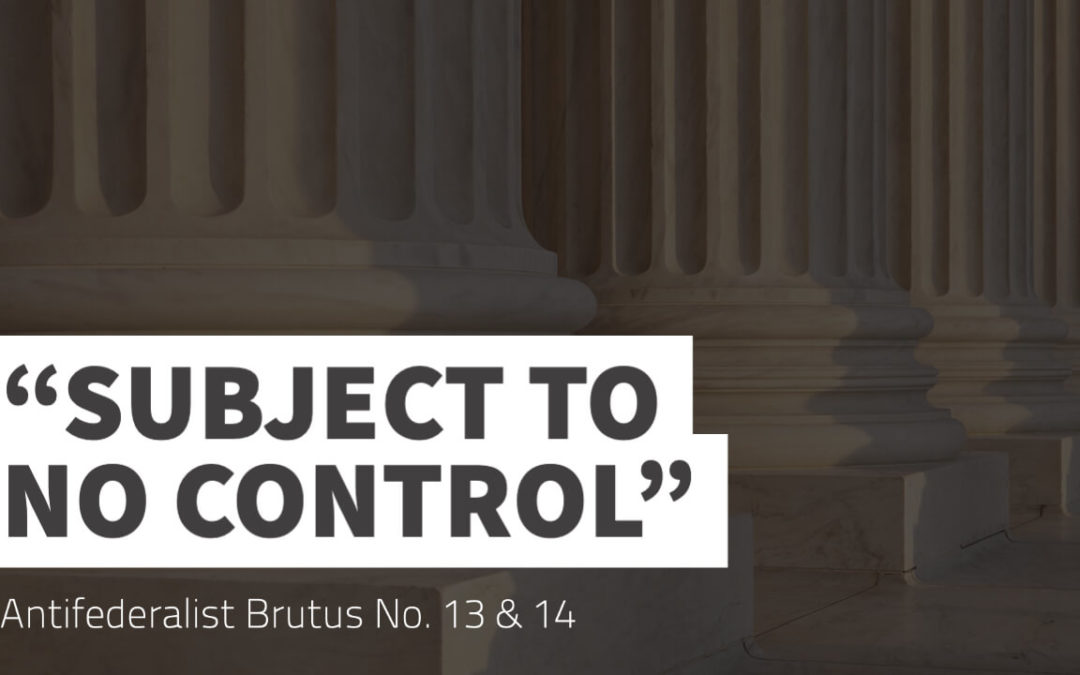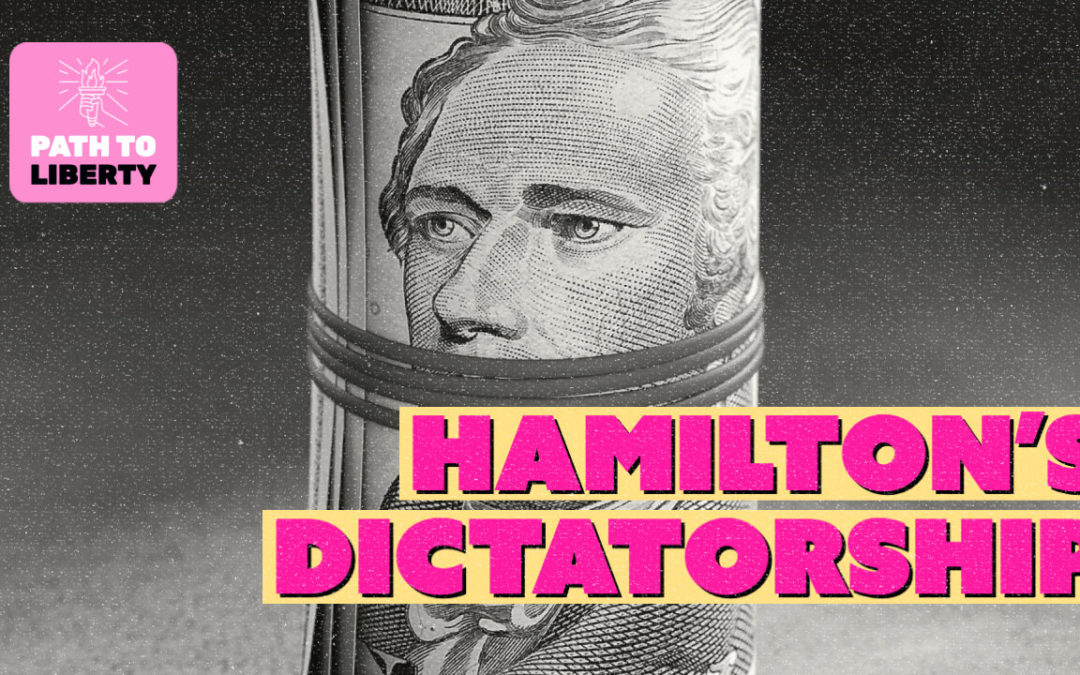

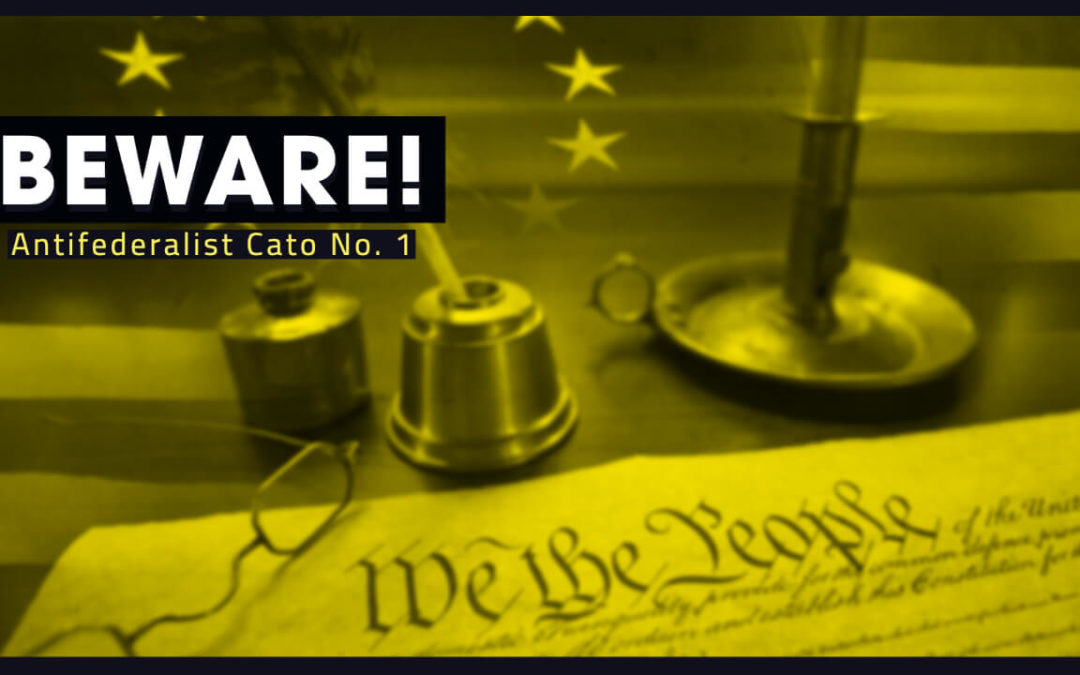
Urging Caution: Antifederalist Cato No. 1
Just days after the proposed Constitution was signed in Philadelphia, the first of Cato’s Antifederalist papers was published in the New York Journal. In this paper, Cato urged caution, and urged readers to decide for or against the plan based on principle rather than...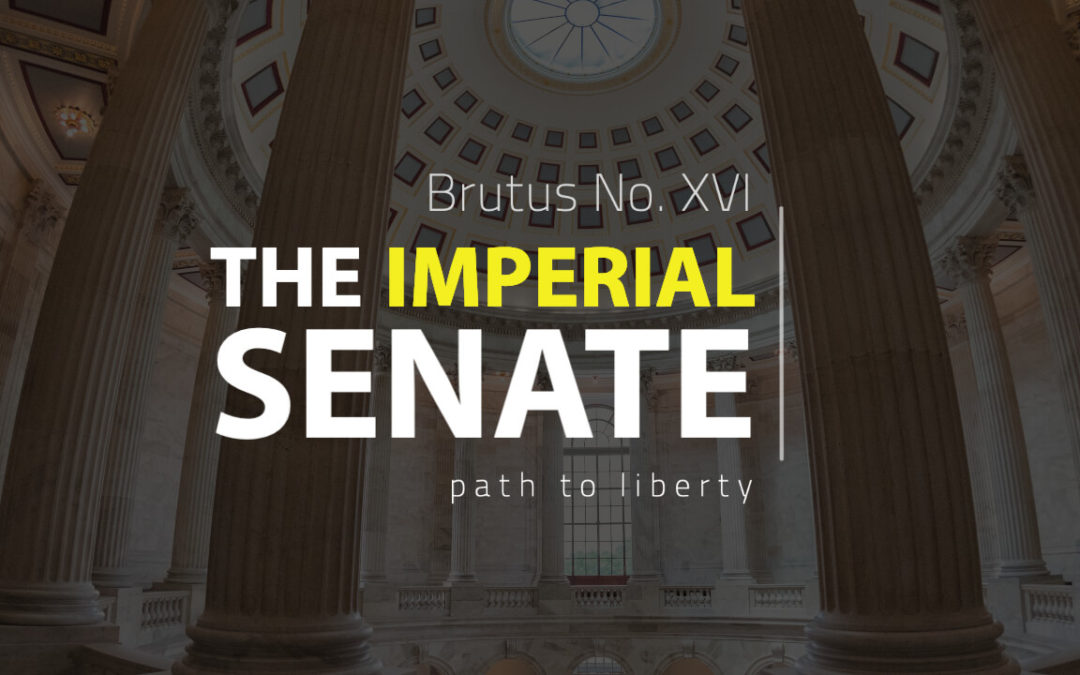
The Imperial Senate: Antifederalist Brutus No. 16
In his final paper, Brutus takes on the structure and power of the Senate. He found one part he really liked, but the rest – predicted it would turn into a permanent aristocracy of sorts, with senators mostly serving for life. Path to Liberty, Fast Friday...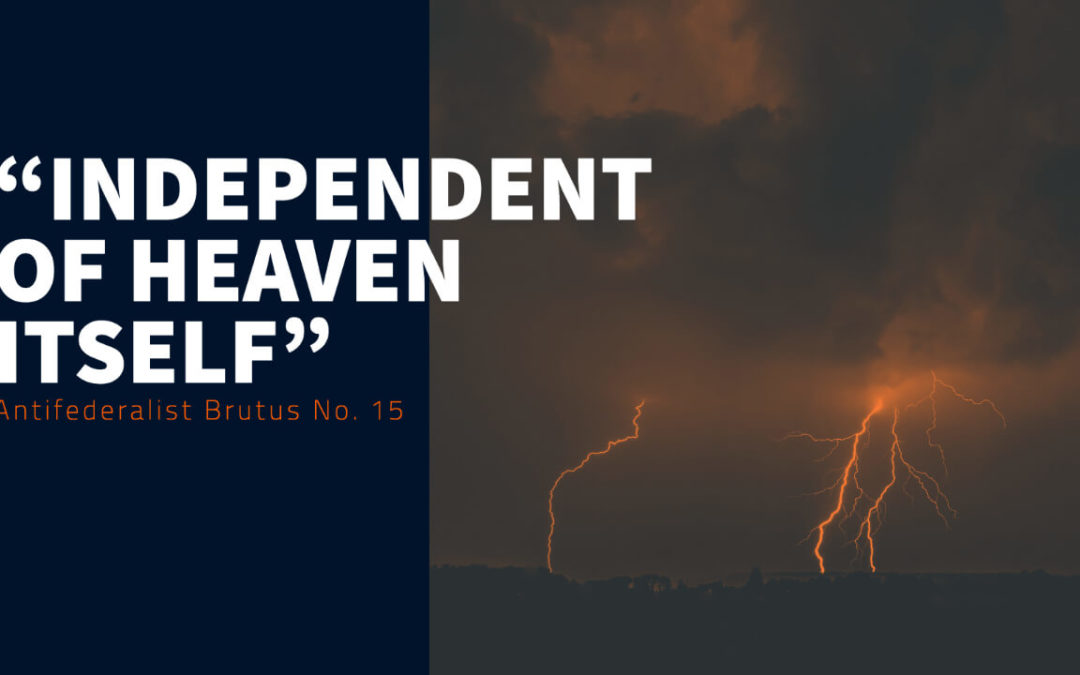
Independent of Heaven Itself: Antifederalist Brutus No. 15
Warning that the federal judiciary would be much more than just “independent,” the antifederalist writer Brutus predicted that it would instead be supreme over the other branches rather than co-equal. This, of course, would lead to consolidation, and a destruction of...